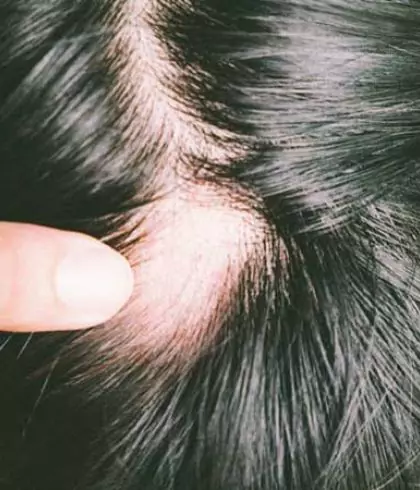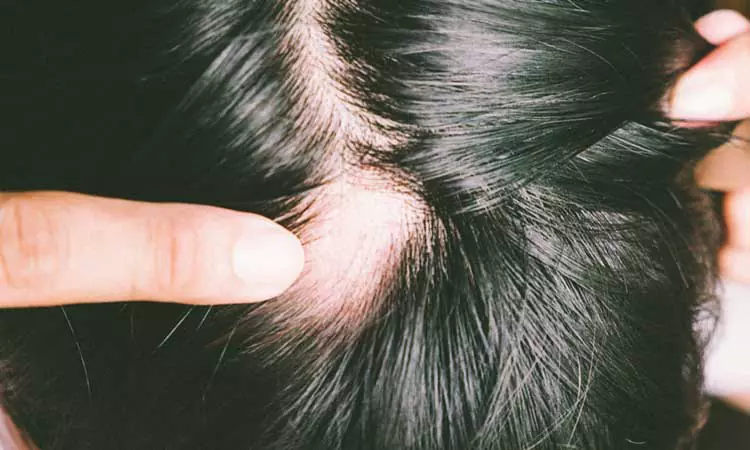

Can alopecia areata be treated?
Hair loss can be emotionally distressing, especially when it occurs unexpectedly or in unusual patterns. If you’ve started to notice sudden hair loss in round patches—on your scalp, beard, or even eyebrows—it may be more than just temporary shedding. As specialists in homeopathic healthcare at Dr Batra’s®, we’ve helped thousands of patients manage and treat different forms of alopecia. One of the most misunderstood types is Alopecia Areata—an autoimmune condition that leads to sudden, patchy hair loss. Here's what you need to know.
What Is Alopecia Areata and How Does It Affect You?
Do you lose hair in patches? Are you noticing excessive hair fall on your pillow or in the shower? Are you experiencing hair loss from your beard?
Chances are high that you may be experiencing a hair loss condition called Alopecia Areata. This is one of the most common forms of autoimmune hair loss, where the immune system mistakenly attacks healthy hair follicles, causing hair to fall out in small, round patches. It may also progress to more severe forms like alopecia totalis (loss of all scalp hair) or alopecia universalis (loss of all body hair).
Often, alopecia areata goes unnoticed until the hairdresser spots the bald patches, or you begin seeing them in the mirror. Due to its unusual presentation, the condition can remain undiagnosed for a long time, delaying effective treatment.
Alopecia Areata Treatments
The most common conventional treatment for Alopecia Areata is local steroidal injections with or without oral steroids. It has known side-effects when used on a long-term basis. Chances of recurrence are almost 50 percent with conventional methods of treatment for alopecia.
Homeopathy is the safest way to treat alopecia areata. It has a good clinical record in the treatment of alopecia areata. One of the key reasons why it works effectively is that it targets and corrects the altered immune function of the individual and brings it back to normalcy, over a period of time. Thus, the results are long-lasting, and not superficial.
A study conducted in Scotland revealed that 90% of patients with patchy hair loss opted for homeopathy as their first choice of treatment. Alopecia treatment in homeopathy actually helps to slow down the progression of bald patches and fills them up with new hair. Not only do homeopathic remedies reduce hair loss, but they also protect the body from harmful effects, which are common with conventional drugs used for hair loss (like permanent scarring on the scalp).
If alopecia treatment in homeopathy is considered as a treatment option in the early stage of the disease, then the overall control of the disease in future is much better. The duration of treatment in homeopathy will depend on the cause of alopecia as well as the severity of the condition. Large and multiple patches obviously take a long time to be treated as compared to smaller and fewer patches.
Homeopathic medicines for alopecia also help to deal with stress more effectively. They are absolutely free from side-effects.
So, if you are suffering from alopecia areata and looking for a safe and effective treatment option, try homeopathy. Sooner you take the treatment, better will be the results.
Few self-help tips.
- Increase your intake of proteins like soya, fish, eggs, chicken, beans and legumes, fruits and green leafy vegetables, and raw unprocessed nuts.
- Include pumpkin seeds and flaxseeds as they nourish your hair from the roots.
- Keep yourself well hydrated by drinking adequate water.
- Avoid smoking it would be great if you can give up smoking as it could lead to hair loss.
- Work on your stress levels and try relaxation techniques like yoga and meditation.
Key Takeaways
- Alopecia Areata causes patchy hair loss and can lead to total hair loss on the scalp or body.
- Early treatment can effectively manage symptoms and stop new patches from forming.
- Conventional treatments like steroid injections have side effects and a high chance of recurrence.
- Homeopathy is a safer treatment option that targets immune function and has long-lasting results.
- Eating a balanced diet, staying hydrated, quitting smoking, and managing stress can help support hair health.

